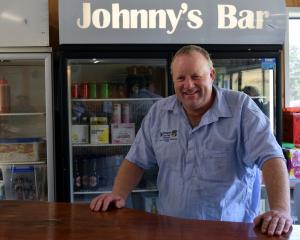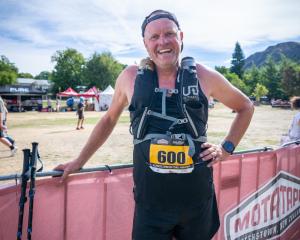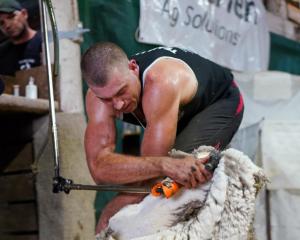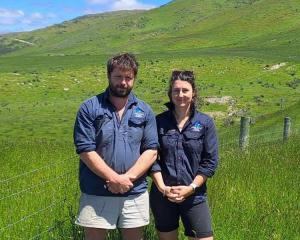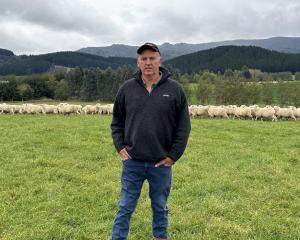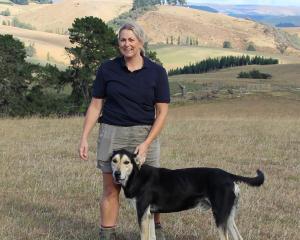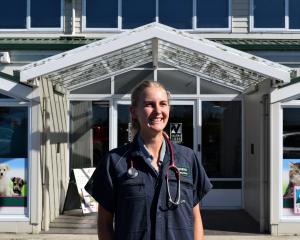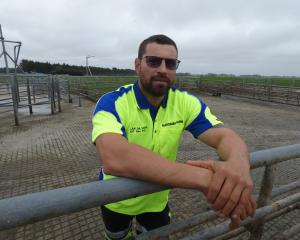
Mr Whyte grew up as the second generation on 260 acres at Taramoa, near Invercargill. As well as helping his father on their sheep and beef farm, he organised and worked in an open contract shearing gang.
‘‘Unfortunately, Dad died when I was in my early 20s. I had just married Glenda and was loving the shearing, but with a farm to run and a young family to care for, I decided it was all too much and gave it away,’’ he said.
The Whytes farmed a conventional sheep, beef and deer fattening operation for many years and took huge pride and satisfaction in producing top quality lamb for the export market. Over the years, they jumped at opportunities to purchase neighbouring blocks of land.
‘‘Farming sheep to make a profit gradually became harder, with years of rolling strikes at the processing companies, which forced lambs to not be killed when ready, and also years of instability in the lamb price schedule. We decided enough was enough,’’ he said.

‘‘It all sounds simple, doesn’t it? But it hasn’t been. It’s been a matter of trial and error and lots of hard work,’’ Mr Whyte said.
The couple saw an opportunity in the dairy sector to supply chaser bulls, a process whereby any dairy cows that have missed conception by AI, will have the business finished by the chaser bull — leading to that cow producing a white faced calf for easy identification, which can also be finished and killed for beef.
Mr Whyte believes there is a lot of wastage in the bobby calf. A beef breed — such as a Hereford — can add a lot of value if a dairy farmer has the capacity to finish the calves. The service involves leasing yearling bulls and selling two-year bulls, all of which are Hereford.
‘‘As a kid, I always liked the Hereford breed and Dad had always said you couldn’t go too wrong with a first cross when you start with Hereford.’’
The business has worked well and demand has been strong.
‘‘Things have simmered a bit at the moment and we have cut back on our numbers this year to reflect that.’’
This year, the Whytes will winter 358 2-year-old bulls on feedlots at 60 per feedlot, and 280 yearling bull calves on winter crops.
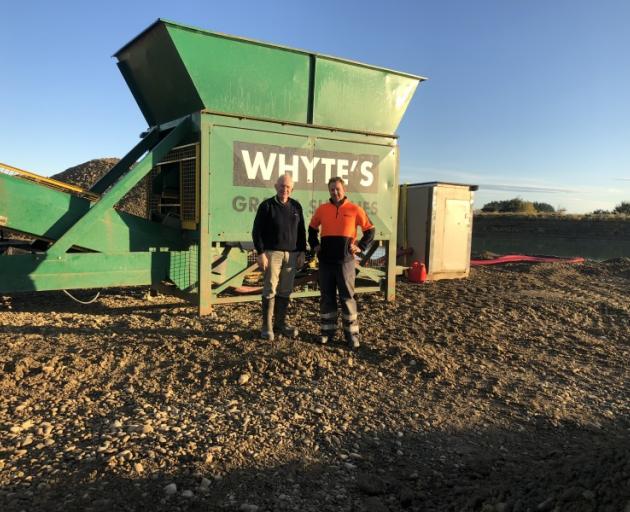
‘‘It was a huge undertaking to develop the block, which had previously been farmed.’’
Mr Whyte said there were 140 sections in total, with about 50 left to sell.
Mr Whyte had been very hands-on, particularly in the civil works of the project on a daily basis.
‘‘I have really enjoyed the process. You have a lot of dealings with a lot of people. It is certainly a lot different to just me on the farm,’’ he said.
His son Jamie is a qualified surveyor and engineer based in Auckland.
‘‘Jamie was able to give us a lot of guidance. It was very helpful.’’
The family’s gravel supply business, Mr Whyte said, was ‘‘sort of an accidental offshoot’’ that came about when the subdivision needed gravel.
‘‘We got geared up to supply gravel into that and then pretty quickly the demand was there to supply others around the region as well.’’
Compliance was very strict, Mr Whyte said, as contracts for council and state highway roading required regular testing and certification.
‘‘It’s not like farming where if you stuff up you can own it and move on. With gravel, a mistake has a knock-on effect, there’s little room for error.’’
A cancer scare eight years ago gave Mr Whyte a new perspective on life.
‘‘I was told I had six months to live and chemotherapy was not an option.’’
Mr Whyte had prostate cancer as well as third stage bone cancer and lymphoma.
With the odds stacked against him, he decided to try an alternative form of medicine after ‘‘a moment of good fate’’ led him to establishing contact with a North American Indian healer living in the North Island.
What came next was a journey of establishing a totally new lifestyle — one without alcohol, sugar, dairy or red meat and harnessing a positive mindset. He had since competed in half-ironman competitions and endurance bike races.
‘‘I get a lot of calls from people wanting to know how I beat cancer. It all starts with mindset, but it won’t be the answer for everyone. For some it might be a matter of timing or their form of cancer,‘‘ he said.
‘‘When I got sick, we were blessed to have our youngest son, Scott, return home from studying in Melbourne with his partner Hannah.’’
Scott quickly became interested in the gravel business side of the operation and enjoyed the complexity of the compliance and consent processes. He now manages that part of the Whytes’ business.
Mr Whyte’s health problems had also influenced the way they farmed their land.
They had now stepped away from the use of artificial fertilisers and were working on a natural fertiliser system. They were also gradually moving away from the use of pesticides and herbicides.
‘‘We believe that the long-term sustainability and care of our soil will produce good results and look after the future generations.’’
In 2013, they bought another 100 acres at Branxholme which then opened up the opportunity for their daughter Rebecca, her partner Daniel Iosefo and their two children into the business. Mr Iosefo manages the bulls at Branxholme and Wallacetown.
The couple liked how the complexity and growth of the business had allowed family to return home and join the operation, and Mrs Whyte’s time was spent mainly in the office and garden.
Mr Whyte said they they both appreciated the time and energy everyone put into their operation.
‘‘We are so lucky.’’
- Alice Scott



